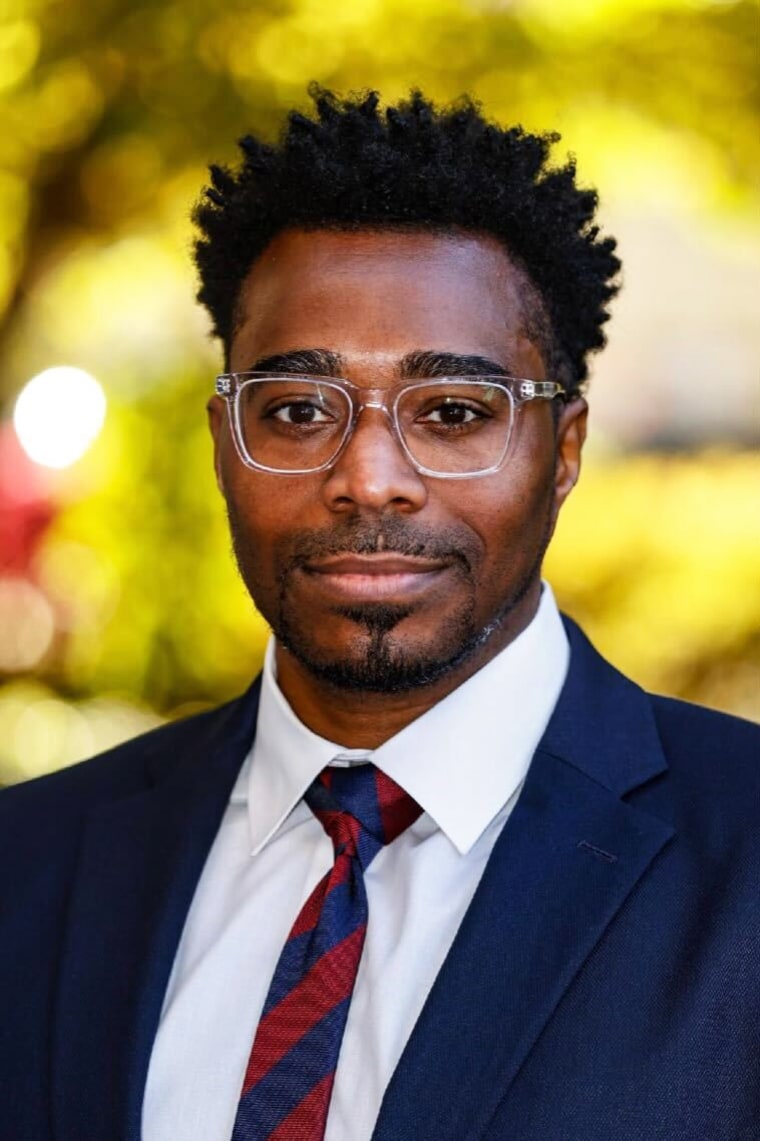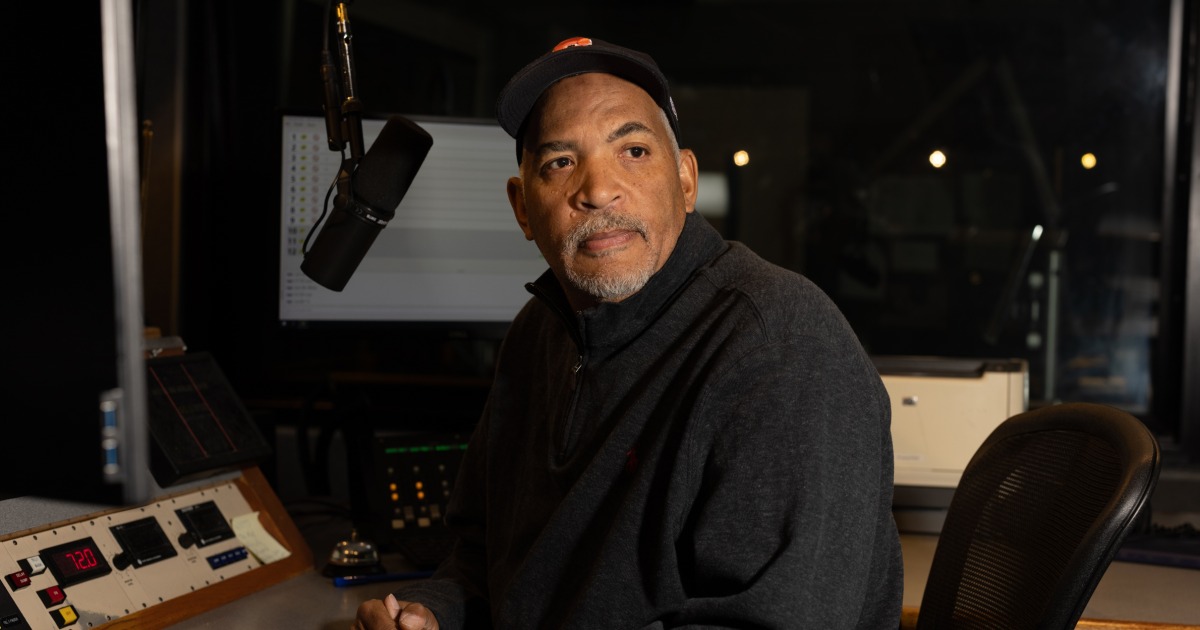Black conservative radio host Shelley Wynter drew outrage from many when he broke down the Black male electorate in the U.S. into “house African Americans and field African Americans” during an appearance Wednesday on CNN.
Wynter told NBC News on Thursday that he knew his remarks would be “a bazooka blast,” but still stood by them.
On “CNN News Central” with co-host Sarah Sidner, Wynter was discussing whether Black people will turn out to vote for the Democratic presidential nominee, as they have in the past, or vote Republican in larger numbers.
“Let me boil this election down in the African American community to a very simple — I’ll reference the great Malcolm X,” he said. “This race is between house African Americans and field African Americans, and field African Americans are voting for [Donald] Trump.”
During enslavement in the U.S., “house slaves” worked in the main house and generally performed indoor tasks. “Field slaves” worked hard labor on the land and lived in decimated quarters.
Invoking slavery seemed to stun Sidner and guest Michael Blake, a former adviser to Barack Obama. The comment also incited an avalanche of social media criticism directed at Wynter, whose radio show, “The Shelley Wynter Show,” is based in Atlanta.
At the same time, Wynter’s comments highlighted the intensity surrounding the Black male vote and how influential it may be in November.
“I was sort of shocked not just by the word choice, but conceptually, what was being said,” said Lesley Mac, an organizer and activist from Brooklyn. Mac added that the closeness of the race has made the Black vote a coveted bloc, which has initiated more attention from both candidates than in the past. “It just reached sort of a fever pitch this year,” she said.
Rashawn Ray, a senior fellow at the Brookings Institute, said Wynter’s comments “speak to a growing social class divide between the have and have nots among Black Americans.”

“These are the types of comments that oftentimes occur behind closed doors within the Black community.”
Wynter said he expected the backlash — and has been unfazed by it. “I’m a radio show host,” he said. “If I pick the Jets over the Giants, I face criticism. No matter what I say, people are going to disagree with me.”
In this case, though, Wynter doubled down, saying that he was using part of a famous 1963 speech by Malcolm X. In “The Race Problem in America,” Malcolm X equated modern Black people who did not want to separate from the power of white society to house slaves; then he drew a connection between Black people who sought racial liberation with enslaved people who toiled in fields, looked for ways to escape and who openly “hated his master.”
Wynter said anyone who has a problem with him invoking Malcolm X and slavery was “overanalyzing it.”
“There’s an argument to be made that we’re all technically slaves to this system, whether you’re Democrat or Republican,” he said. “No one’s being called a slave. It’s using an analogy in the context of what it was used, the same as when Malcolm was explaining something, and he wasn’t calling Black people slaves when he gave that speech.
“He was saying that this was an attitudinal thing. There are people in the Black community who, when they’re close to power — i.e., master — they will take on the attributes and defend that power. And that’s what we’re seeing now with this race.”
Wynter said that the Black men he engages with each day, in real life are supporting Trump. “They are construction workers and electricians who are not watching mainstream media,” he said. “Their life is day-to-day living, trying to get ahead, trying to take care of their families.”
Mac sees it differently. She said Wynter’s comments were misguided. “Given Shelley’s own profession, to invoke the language of our oppressors for political gain is just wild to me,” she said. “It just does a disservice to all of us, both as voters and as Black Americans. Malcolm was critiquing America’s systemic oppression, not supporting an alt right, authoritative agenda like Donald Trump is representing. It’s insulting of Malcolm’s legacy and the lifelong struggle for Black empowerment against structural racism.”
She added that Wynter’s incendiary remarks were strategic. “He’s sort of exposing this Republican strategy of reducing Black voters, even conservative ones, to simplistic stereotypes that perpetuate division, instead of actually addressing the things that our community needs.”
Ray said Wynters’ comments were “problematic,” but also revealing in a deeper sense. “There’s nothing that compares to enslavement in the United States or for Black Americans,” he said.
But, he added, Wynter’s choice of phrasing speaks to class differences, colorism and other divisions within Black communities, being spelled out, right in the open.
“The key problem is that rarely do they go into the public sphere that allows other people to listen in and also critique and respond to those particular sentiments that oftentimes exist at barbershops, on ball fields, at dinner tables, hanging out with friends,” Ray said.

Leave a Reply